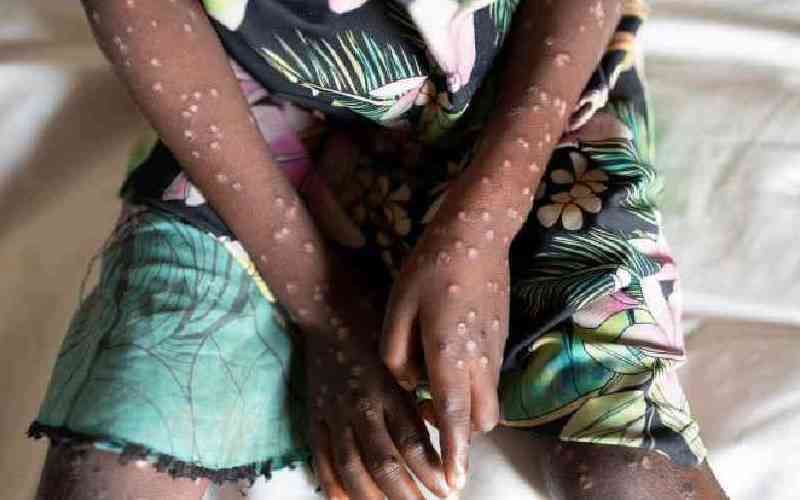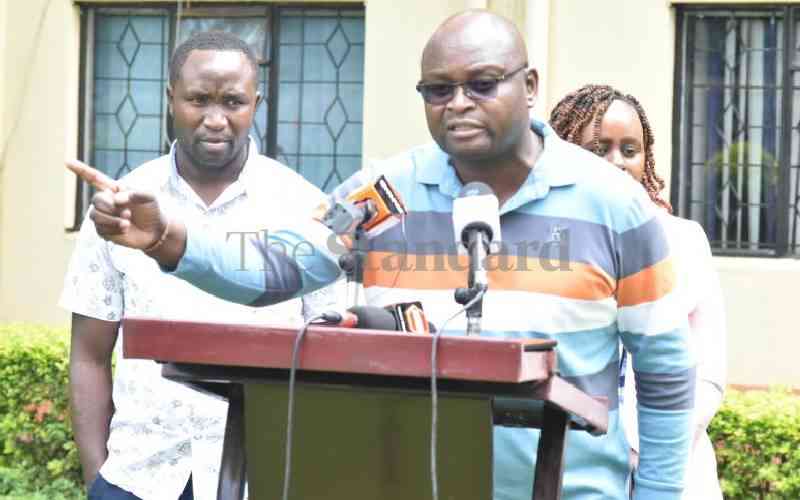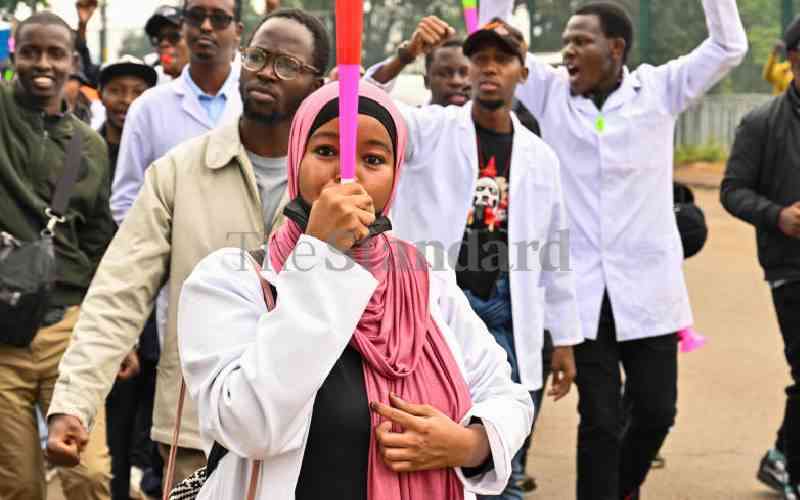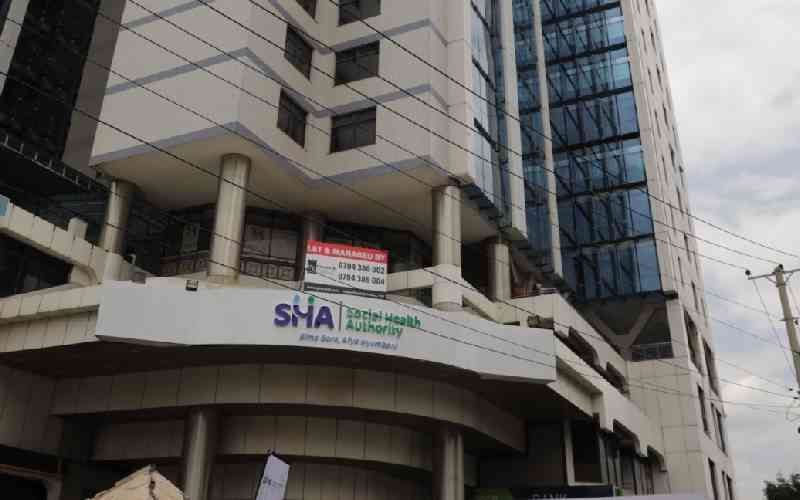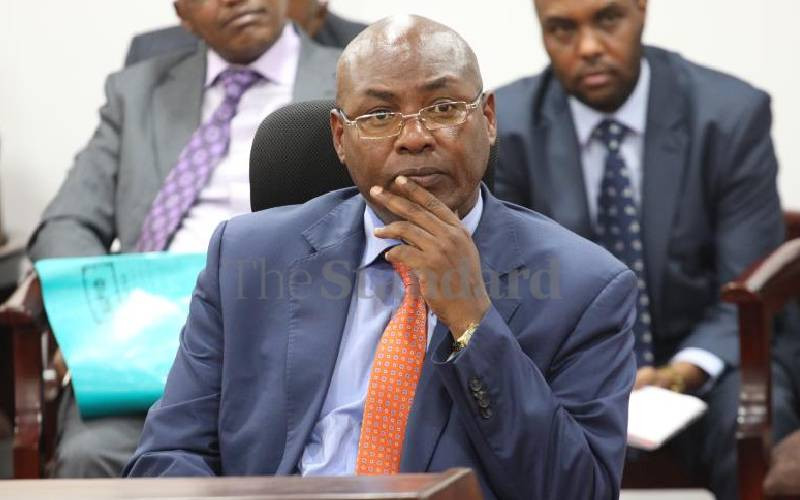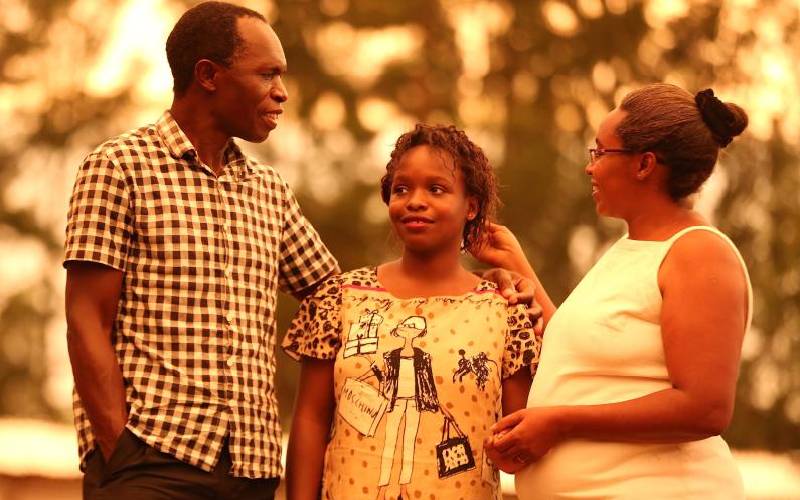
When she conceived her second born, Julie Chedeye could not hide her excitement 16 years ago. Little did she know it would be short-lived?
Within a few weeks, she felt unwell and the doctor recommended bed rest and “my greatest fear was losing my baby,” recalls Julie who was then 28.
Luckily for her, the bed rest was enough to get her back in gear and the baby, Shalom Mwakha, was born beautiful and healthy. However, cracks began to appear when Shalom turned four.
“My active, bubbly child suddenly began getting attacks,” says Julie. “Her body would shiver uncontrollably and she would have difficulty walking. She walked on her toes.”
A few weeks after the first symptoms showed, Shalom developed a high fever and was rushed to the hospital where a pediatrician brought her temperature down and “informed me that Shalom had inherited “something” from me but couldn’t confirm what it was.”
After a series of tests and consultations with medics, Julie was told that Shalom possibly had bronchitis, a respiratory illness. She was put on treatment.
But at the age of six, her allergic attacks worsened. She walked with a limp. Upon return to hospital, medics recommended a Doppler test which measures the amount of blood flow in the veins and arteries.
The test revealed Shalom had blood clots in the legs and was referred to a pediatric rheumatologist who ordered more tests.
A Magnetic Resonance Imaging (MRI) of the brain showed several clots with one ventricle of the brain completely blocked. The results confirmed that she suffered from anti-phospholipid syndrome (APS) for which five percent of the population has APS antibodies.
Annually, five cases are reported per 100, 000 people in Kenya.
Dr Charles Omondi, a rheumatologist, says that APS is a rare genetic disease with no cure. It is a condition where the body reacts against its own generated proteins.
Explains Dr Omondi: “The syndrome manifests when the body produces protein substances which trigger reaction against normal tissue –lack of self-tolerance. APS can be triggered by an infection, ultraviolet rays and smoking.”
Dr Omondi further notes that to be sure it is anti-phospholipid syndrome “there must be clots in the body, which manifests with a severe headache which does not go away even with medication. We check for antibodies to confirm if one has APS then scan the body parts for clots. If clots are found, drugs are prescribed.”
Pregnant women suffering from the condition could lose up to three pregnancies all in their first trimester or at 34 weeks due to thrombosis which increases miscarrages from one percent to between 1o to 15 percent for women with APS.
The patients also experience uncontrollable convulsions.
With the diagnosis, Shalom was immediately put on treatment. Since then, she regularly undergoes a test to check the level of blood thickness. This helps monitor the likelihood of formation of clots.
“What makes the treatment expensive are the tests which cost more than the drugs. The tests are done bi-monthly with each costing an average of Sh2,000 in public hospitals,” says Dr Omondi.
The drugs also present some side effects like bleeding and “the drugs and some steroids, increase the susceptibility of patients to viral infections like Covid-19,” he adds.
In the course of managing Shalom, Julie also started developing body jerks and body pains that needed sedation.
Her husband, George Omamo, recommended treatment in the US and India on the advice of local doctors. In India, she was treated for back pain while medics in the US diagnosed an enlarged heart and put her on medication.
But three years ago her condition worsened and she was rushed to Kisumu Specialist Hospital where clots were fond in her lung arteries (pulmonary embolism). Like her daughter, she had APS and “it was a shock to us as she had been put on different medications that had little impact on the problem,” says Omamo.
Patients with APS are advised to avoid smoking, minimise sun exposure and wear sunscreen religiously as the sun’s ultraviolet rays damage the cells and dead cells stick around in the body, triggering an immune system attack.
Dr Omondi also says “patients should avoid the risk of mouth infections which spur APS attacks.”
The couple’s firstborn daughter Doxa Keran, 20, was also diagnosed with an autoimmune disorder when she was eight.
Julie says before a neurologist discovered that her thyroid levels were low she was being monitored by a pulmonologist over frequent constipation and put on drugs.
“She is now on autoimmune drugs but from her symptoms we are afraid that it might be APS,” noted Omamo.
While APS is sporadic, it can sometimes be hereditary and Omamo suspects it runs in their family as “Julie’s grandmother succumbed to blood clots in her left leg. So maybe that is the link.”
Today, mother and daughter are on a drug regime that includes a cocktail of painkillers to manage the condition.
 The Standard Group Plc is a multi-media organization with investments in media platforms spanning newspaper print
operations, television, radio broadcasting, digital and online services. The Standard Group is recognized as a
leading multi-media house in Kenya with a key influence in matters of national and international interest.
The Standard Group Plc is a multi-media organization with investments in media platforms spanning newspaper print
operations, television, radio broadcasting, digital and online services. The Standard Group is recognized as a
leading multi-media house in Kenya with a key influence in matters of national and international interest.


